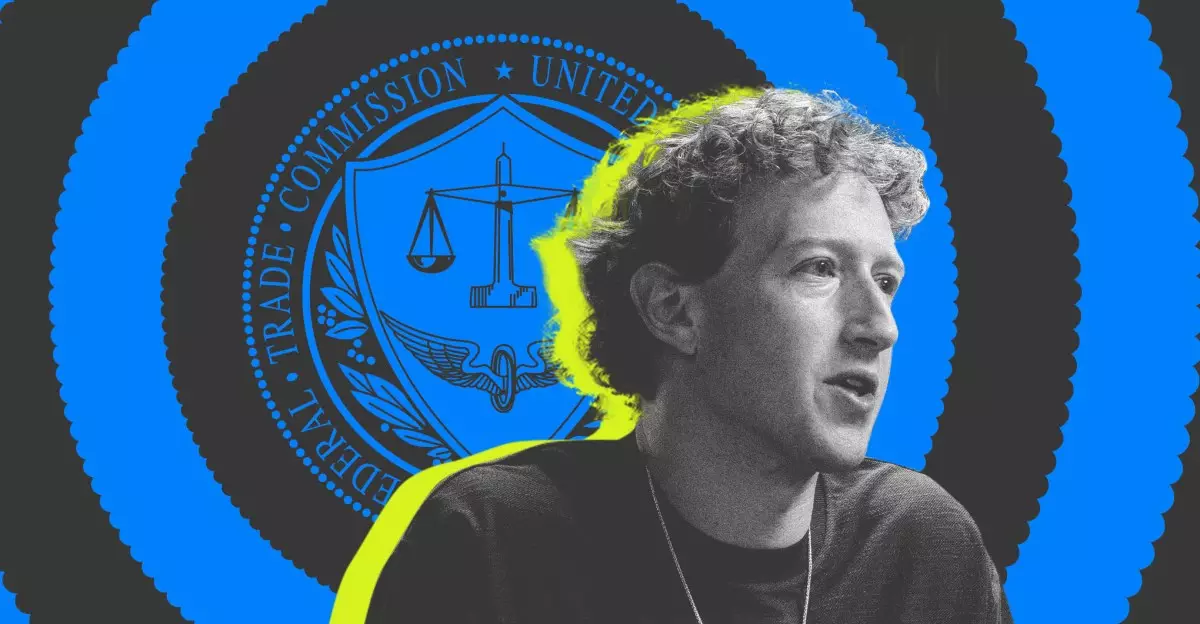In a world where technology evolves at breakneck speed, few narratives encapsulate the high-stakes nature of this evolution quite like that of Meta, previously known as Facebook. The tale of this social media behemoth unveils a series of pivotal decisions made by CEO Mark Zuckerberg, especially under the watchful eye of regulators. Recent testimonies from Zuckerberg, particularly in the midst of a significant antitrust case spearheaded by the Federal Trade Commission (FTC), shine a light on the crossroads at which innovation meets regulation. Instead of mere compliance, Zuckerberg’s decisions underscore a deep strategic acumen intertwined with a relentless pursuit of market dominance.
Zuckerberg’s early deliberations provide tantalizing glimpses into an alternative trajectory—one where Instagram became an independent entity, Snapchat was firmly in Meta’s grasp, and perhaps the entire landscape of social media was irrevocably altered. Such visions of separation indicate a level of foresightedness rarely afforded to founders in the tech space. With each strategic acquisition that Meta has made, from Instagram to WhatsApp, Zuckerberg reflects the philosophy that preemptive action against potential challengers is a necessity in maintaining market supremacy.
The Dynamics of Competition
A significant part of the FTC’s case against Meta hinges on the agency’s assertion that Zuckerberg’s rapid acquisition strategy effectively stifled competition, thwarting any nascent challengers that could have potentially rivaled the Facebook empire. In this light, the courtroom can be perceived as a battleground where the landscape of personal social networking is dissected and redefined. Zuckerberg’s foray into parsing the term “fluid” to describe the market dynamics adds a layer of complexity, suggesting that the determination of competition cannot be confined to just social platforms but must consider varying consumer behaviors and preferences.
While the FTC presents its rationale, Meta’s narrative is intriguing. Zuckerberg posits that competitors such as TikTok and YouTube represent significant forces that transcend traditional definitions of social networking. Their rise challenges both the framework of competition envisaged by the FTC and Zuckerberg’s vision for what constitutes a relevant player in digital interaction. This assertion emphasizes that the competition landscape is not static; rather, it is a complex web of influencers, entertainments, and social platforms that evolve in tandem with consumer expectations.
Examining Creative Alternatives
Diving deeper into Zuckerberg’s testimony reveals an array of imaginative yet controversial ideas that could have dramatically reshaped Meta’s trajectory. The notion of wiping the slate clean—removing all friends from users’ lists—captures a revolutionizing daringness that speaks to Zuckerberg’s ambition to reinvent user experiences. The idea of creating a feed solely dedicated to advertisements raises eyebrows; it underlines a chilling willingness to prioritize monetization over user engagement. However, it also highlights a crucial understanding—users are often oblivious to the divide between advertorial content and genuine engagement.
The prospect of acquiring Snapchat in 2013, considered a floundering opportunity, illustrates how the tech industry can pivot on a single decision or missed chance. Zuckerberg’s desire to integrate Snapchat’s functionalities stands as an alternate reality wherein Meta would have strengthened its foothold even further. What might have emerged is a version of social media that could have looked vastly different today, where user experience and platform interactions are richer and more diversified.
Understanding Internal Dialogues and Fears
What becomes apparent from the trial proceedings and Zuckerberg’s internal communications is a CEO grappling with fear and urgency in the face of relentless competition. The notion that Meta’s acquisitions were driven not solely by a desire for growth but stemmed from anxiety about falling behind speaks volumes about the ever-shifting nature of the tech industry. The internal documents and exchanges disclose that even Meta’s towering stature was fragile, a realization that prompts a critical examination of the lengths to which companies will go to preserve relevance and power.
Ultimately, the Facebook saga, with its convoluted narrative peppered with bold decisions and regulatory scrutiny, offers a riveting lens through which to view technological advancements. As Zuckerberg navigates his courtroom drama, it underscores the realities that innovators face: the intersection of ambition, creativity, and the looming specter of regulation remains an omnipresent reality in reshaping our digital landscape. As such, the trail of Meta’s evolution serves as a cautionary tale about the ramifications of unchecked growth, while simultaneously illustrating the extraordinary potential of visionary leadership in a world ripe for change.


Leave a Reply